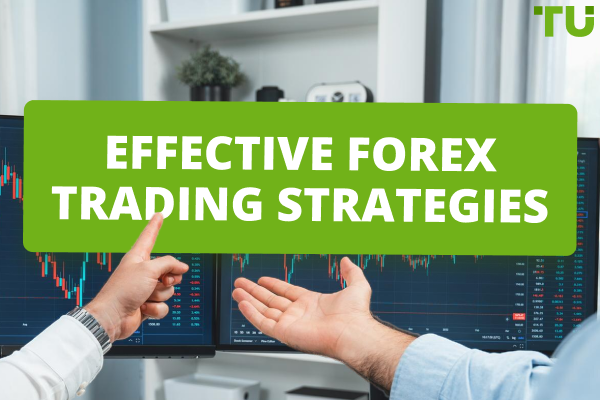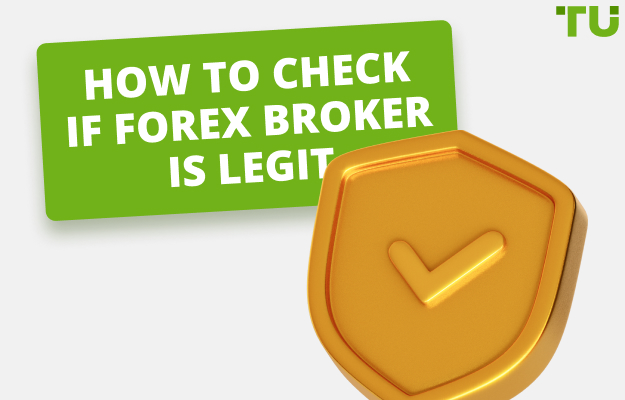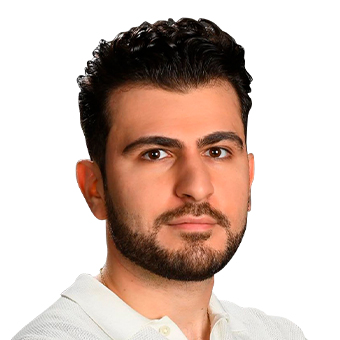Best Futures Trading Forex Brokers
Best futures trading forex brokers are:
-
eToro - Biggest copy trading community in the world (over 3,000 verified investors with copiers)
-
OANDA - Best for trading with advanced technical analysis tools (TradingView charts support)
-
IG Markets - Favorable Forex trading conditions (0 fees, avg. EUR/USD spread - 0.8)
-
Maunto - Wide range of account types suited for aggressive trading (leverage up to 1:400, stop out 20%)
-
Trading.com - Farouble Forex trading conditions (leverage up to 1:50, 70+ currency pairs)
-
FOREX.com - Diverse range of tradable assets (80+ currency pairs)
Futures trading in the Forex market is an appealing option for many investors due to its potential for high returns and the leverage it offers. This article will guide you through the best brokers for futures trading in 2024, highlighting key features and criteria to consider when choosing a broker.
Whether you’re a novice or looking to refine your trading strategy, this guide provides the insights needed to make informed decisions.
Best Futures trading Forex brokers
| Futures trading | Minimum deposit | Trading platform | Regulation | |
|---|---|---|---|---|
$50, $100 (for UK clients) |
MobileTrading, WebTrader |
CySEC, FCA, ASIC |
||
No |
WebTrader, MetaTrader4, Mobile platforms, MetaTrader5 |
FSC (BVI), ASIC, IIROC, FCA, CFTC, NFA |
||
$1 |
MetaTrader4, API, ProRealTime, IG Trading Platform |
FCA, BaFin, ASIC, MAS, CySec, FINMA, BMA, CFTC, NFA |
||
250 USD |
WebTrader |
MISA |
||
from 5 USD |
MT5 |
FCA, CFTC, NFA |
||
$1000 |
FOREX.com, MT4, MT5 |
CIMA, FCA, FSA (Japan), NFA, IIROC, ASIC, CFTC |
||
THB 25,000 - THB 50,000 subject to the market |
Phillip NOVA (LME), Fund SuperMart, Settrade Streaming, POEMS 2.0, POEMS Professional |
SEC |
Top futures brokers: all supported markets
| Currency Pairs | Commodities | Gold | Indices | Options | |
|---|---|---|---|---|---|
55 |
|||||
90 |
|||||
60 |
|||||
55 |
|||||
80 |
|||||
Useful trading tools of Top Futures Brokers
| Trading platform | Trading bots | TradingView | Scalping | API | One click trading | Signals (alerts) |
|---|---|---|---|---|---|---|
What is futures trading?
Futures trading involves buying and selling contracts for the delivery of a financial instrument on a future date. Unlike spot Forex trading, futures contracts specify a set date and price, allowing traders to speculate on price movements without owning the underlying asset.
Key Differences from Spot Forex Trading
-
Leverage: Futures often provide weaker leverage compared to spot trading.
-
Contract Expiration: Futures contracts have a set expiration date, whereas spot trades can be held indefinitely.
-
Margin Requirements: Futures trading typically requires larger margin deposits.
-
Market Access: Futures are traded on exchanges, providing centralized pricing and transparency.
Whether futures trading is better than Forex trading depends on individual preferences, but there are notable advantages to trading Forex futures over spot Forex.
Benefits of Trading Forex Futures Over Spot Forex
Fair and Regulated Markets:
-
Forex Futures: Futures markets are highly regulated, with transactions consolidated on a single exchange, ensuring matched orders and settlement guarantees. This transparency in pricing and volume allows for fair competition.
-
Spot Forex: There is no centralized exchange. Trades are fragmented across various dealers without price and volume transparency, often resulting in the lack of counterparty guarantees.
Consistent Cost to Trade:
-
Forex Futures: Costs generally come in the form of commissions and tight bid/ask spreads set by supply and demand. This ensures cost-efficient trading.
-
Spot Forex: Brokers set the bid/ask spread to manage the risks, often starting trades with a negative profit/loss ratio. Additional costs include commissions and fees on holding positions overnight.
Diversification:
-
Forex Futures: Users can trade a wide range of products beyond currencies, including market indices, interest rates, precious metals, energies, and agricultural products, allowing for greater diversification.
-
Spot Forex: Trading is typically limited to currency pairs and a few CFD products, restricting diversification opportunities.
How to choose the best futures trading Forex broker?
Selecting the right broker is crucial for successful futures trading. Here are the key criteria to consider:
Regulation and Security
-
Make sure the broker is regulated by reputable authorities (e.g., CFTC, NFA, FCA).
-
Check for robust security measures to protect your funds and personal information.
Trading Platform
-
Look for user-friendly platforms with advanced charting tools, real-time data, and high execution speeds.
Fees and Commissions
-
Compare cost structures, including commissions, spreads, and any additional fees.
-
Consider brokers offering volume-based discounts.
Range of Markets
-
Choose brokers that offer a diverse selection of currency futures contracts. This ensures you have access to a variety of currency pairs to trade, providing more opportunities and flexibility in your trading strategies.
Educational Resources
-
Opt for brokers providing comprehensive educational materials, webinars, and demo accounts for practice.
Client Support
-
Ensure the broker offers reliable and accessible client service through multiple channels (e.g., phone, chat, and email).
How do you start trading futures?
Starting futures trading involves several steps:
-
Research and Education: Understand the basics of futures trading, market terminology, and strategies.
-
Choose a Broker: Select a broker that meets your needs based on the criteria discussed earlier.
-
Open an Account: Complete the broker’s application process, providing necessary identification and financial information.
-
Fund Your Account: Deposit the minimum required amount into your trading account. Some brokers allow you to start with as little as $100, but a higher initial deposit is often recommended.
-
Select Your Trading Platform: Download and set up the broker’s trading platform, customizing it to suit your trading style.
-
Develop a Trading Plan: Outline your trading goals, risk tolerance, and strategies. Use demo accounts to practice without risking real money.
-
Start Trading: Begin with small positions, gradually increasing them as you gain experience and confidence.
What hours can I trade futures?
Futures markets trade nearly 24 hours a day, 6 days a week. Currency futures are available for trading from 6 p.m. ET on Sunday to 5 p.m. ET on Friday.
Are there risks involved in futures trading?
Yes, futures trading involves significant risks, which can impact your trading success. Understanding these risks is crucial for managing them effectively.
Main Risks in Futures Trading
Market Risk:
-
Description: The risk of prices moving against your position.
-
Example: If you hold a long position in a currency futures contract and the market price drops, you incur losses.
-
How to Avoid: Use stop-loss orders to limit potential losses and regularly monitor market conditions.
Leverage Risk:
-
Description: High leverage can amplify both gains and losses.
-
Example: Trading with 10:1 leverage means a 1% market move can result in a 10% change in your account value.
-
How to Avoid: Use lower leverage ratios and only trade with money you can afford to lose.
Liquidity Risk:
-
Description: The risk of not being able to enter or exit positions at desired prices due to low trading volumes.
-
Example: Trying to sell a futures contract in a thinly traded market might result in unfavorable pricing.
-
How to Avoid: Trade futures contracts with higher liquidity and avoid thinly traded markets.
Margin Calls:
-
Description: The requirement to deposit additional funds if your account equity falls below the maintenance margin level.
-
Example: If your positions lose value and your equity drops, your broker may issue a margin call requiring additional funds.
-
How to Avoid: Maintain a sufficient margin cushion and monitor your account balance closely to avoid unexpected margin calls.
Operational Risk:
-
Description: Risks arising from technical issues, such as platform failures or data feed problems.
-
Example: A platform outage during volatile market conditions can prevent you from executing trades, leading to potential losses.
-
How to Avoid: Choose a reputable broker with a reliable trading platform and have a backup plan in place for technical issues.
How to Manage Risks in Futures Trading
-
Diversification: Spread your investments across various futures contracts to mitigate risks.
-
Risk Management Tools: Utilize stop-loss and take-profit orders to automate risk management.
-
Education and Research: Continuously educate yourself about market conditions and trading strategies.
-
Start Small: Begin with smaller positions and increase them as you gain experience and confidence.
-
Stay Informed: Keep up-to-date with market news and economic events that could affect your trades.
Our Methodology
Traders Union applies a rigorous methodology to evaluate brokers using over 100 both quantitative and qualitative criteria. Multiple parameters are given individual scores that feed into an overall rating.
Key aspects of the assessment include:
Regulation and safety. Brokers are evaluated based on the level/reputation of licenses and regulations they operate under.
User reviews. Client reviews and feedback are analyzed to determine customer satisfaction levels. Reviews are fact-checked and verified.
Trading instruments. Brokers are evaluated on the breadth and depth of assets/markets available to trade.
Fees and commissions. A comprehensive analysis is done of all trading costs to analyze overall cost to clients.
Trading platforms. Brokers are assessed based on the variety, quality and features of platforms offered to clients.
Other factors like brand popularity, customer support, education resources are also evaluated.
Expert opinion
When considering the best futures trading Forex brokers for 2024, Optimus Futures stands out for its exceptionally low commission rates. Optimus Futures also boasts a highly customizable trading platform, allowing users to tailor their trading experience to their needs. In addition, the broker provides extensive educational resources, making it ideal for both beginners and experienced traders. Its regulation by top-tier financial authorities and dedicated client support further enhance its appeal, ensuring a secure and supportive trading environment.
Conclusion
Futures trading in the Forex market offers numerous opportunities for making profit, but it also comes with significant risks. Choosing the right broker is a critical first step, and this guide has highlighted some of the best options for 2024. By following the tips and steps outlined, beginners can navigate the futures market more confidently and effectively. Remember, continuous learning and risk management are key to becoming a successful futures trader.
FAQs
Can you trade futures on Forex?
Yes, you can trade futures on Forex. Forex futures are standardized contracts to buy or sell a specific currency at a set price on a future date. These contracts are traded on exchanges, providing a regulated and transparent way to speculate on currency movements.
Can I trade futures with $100?
While some brokers may let you open a futures trading account with as little as $100, it's generally advisable to start with a larger amount. Futures trading involves significant leverage and margin requirements, which can quickly deplete a small account. A larger initial deposit provides a cushion to withstand market volatility and manage risks effectively. However, you can start trading micro contracts, which are smaller versions of standard futures contracts. These require significantly less funds to trade, allowing you to speculate at a lower initial cost.
Is trading futures easy?
Trading futures is not necessarily easy and requires a good understanding of the markets, trading strategies, and risk management. High leverage and volatility in futures markets can lead to significant gains, but also substantial losses. It's essential to educate yourself, practice on demo accounts, and start with small positions before committing larger amounts of capital to futures trading.
Glossary for novice traders
-
1
Broker
A broker is a legal entity or individual that performs as an intermediary when making trades in the financial markets. Private investors cannot trade without a broker, since only brokers can execute trades on the exchanges.
-
2
Trading
Trading involves the act of buying and selling financial assets like stocks, currencies, or commodities with the intention of profiting from market price fluctuations. Traders employ various strategies, analysis techniques, and risk management practices to make informed decisions and optimize their chances of success in the financial markets.
-
3
Leverage
Forex leverage is a tool enabling traders to control larger positions with a relatively small amount of capital, amplifying potential profits and losses based on the chosen leverage ratio.
-
4
Futures contract
A futures contract is a standardized financial agreement between two parties to buy or sell an underlying asset, such as a commodity, currency, or financial instrument, at a predetermined price on a specified future date. Futures contracts are commonly used in financial markets to hedge against price fluctuations, speculate on future price movements, or gain exposure to various assets.
-
5
CFTC
The CFTC protects the public from fraud, manipulation, and abusive practices related to the sale of commodity and financial futures and options, and to fosters open, competitive, and financially sound futures and option markets.
Team that worked on the article
Davit Kirakosyan is a financial writer with over 8 years of experience. He has worked for Benzinga, MT Newswires, Investing.com, StreetInsider, and other media outlets. Davit has published hundreds of equity news articles, as well as in-depth analyses and insights on the U.S. stock market.
Dr. BJ Johnson is a PhD in English Language and an editor with over 15 years of experience. He earned his degree in English Language in the U.S and the UK. In 2020, Dr. Johnson joined the Traders Union team. Since then, he has created over 100 exclusive articles and edited over 300 articles of other authors.
Mirjan Hipolito is a journalist and news editor at Traders Union. She is an expert crypto writer with five years of experience in the financial markets. Her specialties are daily market news, price predictions, and Initial Coin Offerings (ICO).










